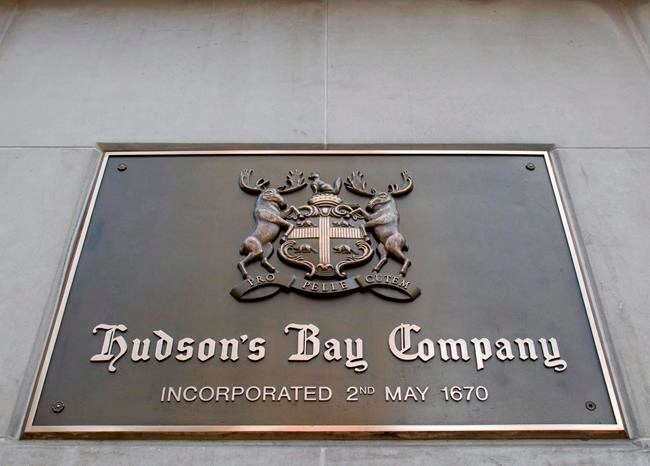Hudson's Bay Co. is separating its department stores from its website, a move one retail analyst says will likely increase the valuation of the online business and attract investors.Â
The Canadian retailer said Thursday its e-commerce marketplace will operate as The Bay, while its 86 brick-and-mortar stores will operate as Hudson's Bay.Â
HBC said the decision to create two separate businesses with distinct leadership will help accelerate the company's digital-first technology shift and elevate the shopping experience for customers online and in store.
But retail expert Bruce Winder said carving off the e-commerce store from the department stores is likely an attempt to bolster the value of the company's online asset.
"The department store sector within retail has very low valuations," he said. "They're weighted down because department stores have been branded as yesterday's business model. People are waiting for them to sort of eventually shrink and go under."
The valuation of a standalone e-commerce company would be much higher — and more attractive to investors, Winder said.Â
"If you chop off the department stores, the e-commerce company can command a much higher valuation," he said. "Suddenly you're playing in the same field as Amazon and Shopify and all these high-flying solid e-commerce companies that have done very well and will continue to do well, especially now that e-commerce has become a major channel post pandemic."
Earlier this year, HBC sold a minority stake in Saks Fifth Avenue's e-commerce business and turned it into a separate company.
Private equity firm Insight Partners invested US$500 million in a deal valuing the standalone business that will be known as Saks at US$2 billion, HBC said.Â
The company said the 40 stores would operate separately as an entity referred to as SFA, which remain wholly owned by HBC.
The trend to separate a retailer's brick-and-mortar stores from its e-commerce stores mirrors a similar trend in retail a little over a decade ago when retailers separated their store operations from their real estate divisions.Â
"Real estate had a higher multiple at that point in terms of the valuation of the assets then if it was coupled with a retailer," Winder said.Â
HBC opened its website to third-party sellers in April, adding thousands of new brands and products to its online assortment.
Richard Baker, HBC’s executive chairman and CEO, said dividing the e-commerce and in-person stores enables each business to make "unencumbered strategic investments."Â
The launch of the retailer's expanded online marketplace earlier this year set in motion a rapid expansion of its e-commerce business, positioning the company to gain significant market share, he said.Â
Iain Nairn, president and CEO of The Bay, said the e-commerce business will focus on technology investment and innovation, with plans to launch technology hubs in Toronto and Seattle to improve fulfilment capabilities, expand marketing and extend vendor partnerships.
The retailer said its department stores will continue to play a critical role in the overall shopping experience.
Wayne Drummond, president of Hudson’s Bay, said the department stores will become "discovery destinations" and serve as an important touchpoint for customers.Â
"With stores in major cities across the country, Hudson’s Bay provides Canadians access to the product they need and want, while offering high-touch services that many others cannot," Drummond said in a statement.
The company said returns, exchanges, rewards points and credit cards will continue to be accepted both online and in stores.
This report by The Canadian Press was first published Aug. 12, 2021.
Brett Bundale, The Canadian Press

